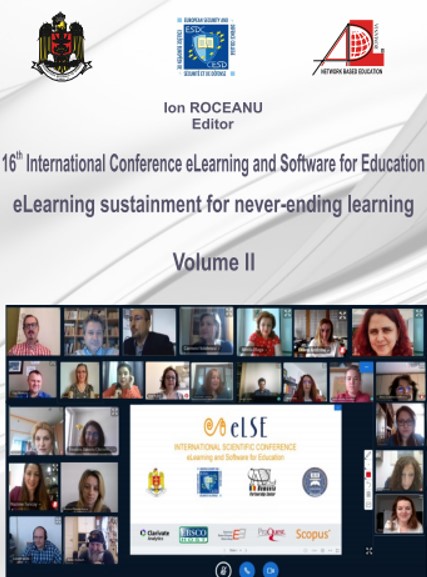VIRTUAL LEARNING ENVIRONMENTS FOR NEVER-ENDING LEARNING: A SURVEY
VIRTUAL LEARNING ENVIRONMENTS FOR NEVER-ENDING LEARNING: A SURVEY
Author(s): Corina CÎMPANU, Robert Gabriel LUPU, Florentina Ungureanu, Tiberius DumitriuSubject(s): ICT Information and Communications Technologies, Distance learning / e-learning, Pedagogy
Published by: Carol I National Defence University Publishing House
Keywords: virtual laboratory; internet of things; never ending learning; virtual learning environment;
Summary/Abstract: Knowledge aggregation is mainly based on education, training, and continuous development. This never-ending learning process starts with inoculating information and generating attitudes, continues with gaining practical skills, and developing a career in a particular domain. Internet technologies development facilitates today the expansion of various e-learning scenarios. In the education domain, distance learning is widely used for teaching and learning in domains like science, technology, or engineering, even if it sometimes becomes difficult to share or to access the whole experimental setting remotely. Virtual laboratories, virtual research environments, or science gateways refer to community-developed digital environments that allow integrated access via web or mobile apps to resources like data, software, tools, high-performance computing, and instrumentation. Virtual environments for learning or research are meant to update the students learning behaviour from passive to active learners by promoting essential thinking skills for the transfer or use of classroom acquired knowledge into a real-life setting. Nowadays, emerging technologies like virtual worlds, augmented reality, or computer graphics tend to overcome the principal difficulties and disadvantages of a virtual laboratory. Virtual environments add a significant contribution to various research domains, enabling bold new ways of facilitating more efficient and open research and learning. This paper aims to create a valuable source of information that outlines the field of virtual learning environments regarding different system architectures and experimental settings, offering a base for future research. The proposed research summarizes state of the art in virtual laboratories in the field of science, technology, and engineering and illustrates a comparative study between virtual learning environments.
Journal: Conference proceedings of »eLearning and Software for Education« (eLSE)
- Issue Year: 16/2020
- Issue No: 02
- Page Range: 69-75
- Page Count: 7
- Language: English

